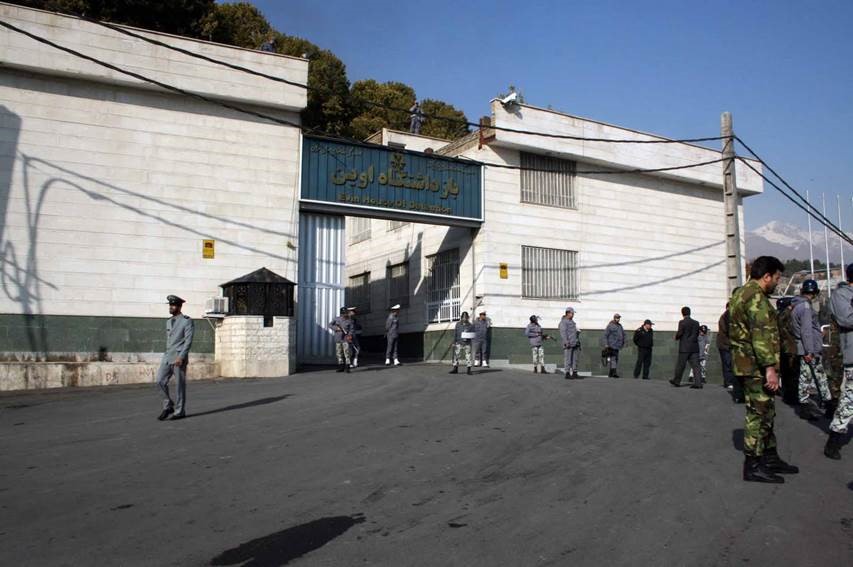Europe-Iran Forum Ignores Jail Risk for Euro Execs
The EU-funded Europe-Iran Forum (EIF), which finally took place last month, was mired in controversy well before it began. Just days before its original due-date last December, Iran executed a high-profile dissident journalist, Ruhollah Zam. This didn’t look good for the European attendees. The EU’s own Foreign Affairs Chief Josep Borrell, the headline act, slunk out with his tail between his legs. The ambassadors from Austria, France, Germany and Italy all pulled out to greater social media fanfare, with Paris denouncing “the barbaric and unacceptable execution” and using the hashtag #nobusinessasusal.
Still, it turned out to be very much “business as usual” for Brussels. Despite the withdrawal of its own top man and its official “condemnation” of the regime’s action, the EU decided after all to plow on and continue to finance the EIF. As described to United Against Nuclear Iran (UANI) in a March letter, “It is funded by the European Commission as part of the EU’s comprehensive approach with Iran, including dialogue with a view to addressing all issues of concern and mutual interests.”
Likewise, it was business as usual for the EIF and its participants, which comprised the familiar medley of regime officials and businessmen, colluding to convince Europeans that Iran is actually a great “investment destination.”
Mouthpiece-in-chief was Deputy Minister Seyed Mousavi, who as head of the Organization for Investment, Economic and Technical Assistance (OEIATA), decides which foreign firms are permitted to operate in Iran. The Minister was at pains to create the impression that foreign firms would be operating on a level-playing field to their Iranian counterparts. In this regard, a great deal of discussion was devoted to Iran’s misleadingly titled Foreign Investment Promotion and Protection Act (FIPPA). While FIPPA is dredged up at every pro-Iran trade event, in reality there is scant “protection” afforded to foreign investors.
Interestingly, the panelists declined to mention a relevant piece of legislation that is currently snaking its way through Iran’s parliament. The “Revenge Bill” stipulates a list of conditions applicable to returning foreign companies in the event they “violate their contract due to sanctions against Iran.” Such companies would be liable to bear all production costs, subject to double taxation, and are lower in the tender bidding pecking order.
And should any firm violate these conditions, “the offender will be sentenced to 1 to 5 years in prison.”
A level playing-field indeed: Let us hope that European participants at the EIF are careful observers of Iranian internal politics. Clearly Iranian parliamentarians have companies like Peugeot in mind, whose departure in 2019 after decades in Iran triggered a wave of righteous anger at the French giant’s concession to American ‘economic terrorism.’ (Iran needn’t worry in this case though: Peugeot management has reportedly decided it won’t be coming back to Iran even if all sanctions were to be lifted – the American market is too valuable).
Nonetheless, Iran is determined that it won’t allow any chance of a repeat of that French humiliation, even if it means incarcerating unwary foreign corporate executives. Unfortunately, Iran’s much-vaunted FIPPA won’t be much use when a politicized judge decides to add yet another European to the regime’s long roster of jailed foreign hostages.
Incredibly, this “Revenge Bill” is judged likely to pass through Iran’s Majlis and become legally enshrined. Yet even if it fails, European CEOs are surely by now aware that Iran’s economy, like its politics, is dominated by the IRGC, a terrorist organization whose official role is to protect and promote the principles of the Islamic Revolution. It has little interest in establishing, let alone safeguarding, fair and equal legal structures for foreign corporations.
So, the EIF did not address “all issues of concern,” as the EU claimed - not by a long stretch. It was as ever simply a forum to promote the friendly face of the regime and to induce unwary Europeans to ignore the myriad risks and start investing. At one point, a panelist from a legal firm even made the ludicrous comparison of Iran to Poland in terms of the next big “investment destination,” due to upcoming legal reforms.
Such an analogy would be laughable were it not so dangerously irresponsible. Before venturing into such perilous waters, every foreign investor must analyze the totality of the Iranian economic context, which is inseparable from the internal political climate and indeed the most brutal elements of the regime.

Receive Iran News in Your Inbox.
Eye on Iran is a news summary from United Against Nuclear Iran (UANI), a section 501(c)(3) organization. Eye on Iran is available to subscribers on a daily basis or weekly basis.